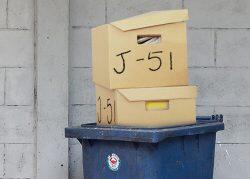 State renews J-51, putting tax break’s fate in city’s hands
State renews J-51, putting tax break’s fate in city’s hands
Trending
City Council eyes bringing back tax break for property owners
Bill would reactivate J-51 through June

More than a year after letting the once-popular J-51 tax break lapse, the city may revive it.
The City Council is considering a measure that would reactivate J-51 through June 30, 2022, and apply it retroactively to projects left in the lurch when the J-51 abatement and exemption expired in June 2020.
Proponents of the bill argue that J-51, provided to help offset the cost of residential renovations or conversions, is critical to preserving the city’s affordable housing.
“It is really necessary for our city’s housing stock,” Brooklyn Council member Kalman Yeger, the bill’s sponsor, said at a Committee on Housing and Buildings hearing Monday. “This is not expensive, and it is absolutely necessary.”
But the program’s rules, along with court decisions limiting rent increases in buildings getting J-51, led to declining participation prior to its expiration. Between 2008 and 2018, applications for the program dropped 69 percent, according to the Department of Housing and Preservation.
Tenant leader Michael McKee complained of a “sneak attack nature” of Monday’s hearing, given that notice for the event was sent just before Thanksgiving. He said the proposed renewal fails to address long-standing criticism of the program, including the city and state’s “lack of enforcement” of rent regulations and the eligibility of market-rate condos and co-ops.
But tenant leaders do not oppose the concept of J-51, as courts have ruled that it protects rent-stabilized apartments. Indeed, the program has been the subject of dozens of lawsuits, largely accusing landlords of taking units out of rent stabilization in buildings receiving the tax break.
Read more
 State renews J-51, putting tax break’s fate in city’s hands
State renews J-51, putting tax break’s fate in city’s hands
 City Council silent as landlords call for J-51 renewal
City Council silent as landlords call for J-51 renewal
Representatives for condo boards testified Monday that the program benefits low- and middle income residents, largely in the outer boroughs. Eligibility for the program is limited to buildings where the average assessed value per unit is $40,000 for rentals and $30,000 for condos and co-ops.
For non-residential properties that are converted into apartments, a substantial amount of the financing must come from government entities. Critics of the program say it’s increasingly difficult to secure such funds unless the newly converted property is 100 percent affordable.
Real estate professionals have also called for changes to J-51, related to the city’s Certified Reasonable Cost schedule, which is used to calculate the value of the abatement. The Real Estate Board of New York testified on Monday that this schedule should be updated to better reflect the true cost of renovations and conversions.
Under the program, participants are exempt from taxes on increased valuations resulting from renovation or conversion work for either 14 or 34 years. They also receive an abatement between 50 percent and 150 percent of the “reasonable” cost of work.
That, according to some building owners, contributed to the drop in J-51 applications. In the fiscal year that ended in June, 399,213 units received abatements and exemptions through the program, according to an annual report by the city’s Department of Finance.
In 2019, HPD indicated that it would provide the state with a series of recommendations on how to reform the incentive program, but never made any recommendations public. HPD did not testify during Monday’s hearing, but in submitted written testimony, expressed support for renewing the program now and amending it later.
“As the city works to rebuild from the pandemic, it is important to have a wide range of tools and programs to create and preserve more affordable housing opportunities for New Yorkers,” the agency stated. “While the pandemic has underscored the need to update the J-51 program to target its tax incentives to low-rent properties that most need assistance to sustain habitability, the existing program should be allowed to continue pending the passage of a state statute that would create a new version.”
The state legislature in June passed a bill that permits the city to renew J-51, as long as it does so by Jan. 1. Renovation or conversion would have to be completed by June 30 to be eligible for the tax break.




